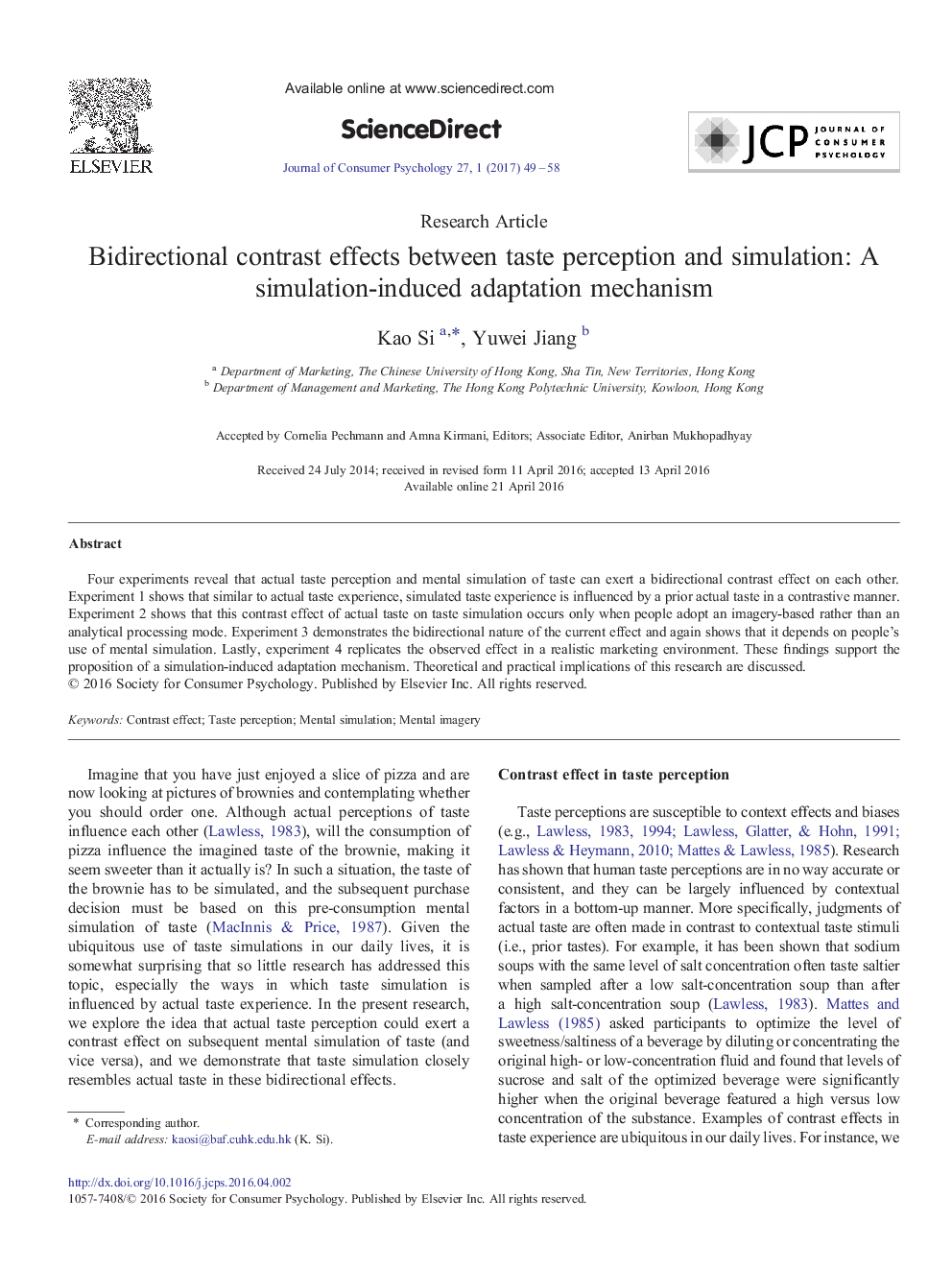| Article ID | Journal | Published Year | Pages | File Type |
|---|---|---|---|---|
| 5034271 | Journal of Consumer Psychology | 2017 | 10 Pages |
Four experiments reveal that actual taste perception and mental simulation of taste can exert a bidirectional contrast effect on each other. Experiment 1 shows that similar to actual taste experience, simulated taste experience is influenced by a prior actual taste in a contrastive manner. Experiment 2 shows that this contrast effect of actual taste on taste simulation occurs only when people adopt an imagery-based rather than an analytical processing mode. Experiment 3 demonstrates the bidirectional nature of the current effect and again shows that it depends on people's use of mental simulation. Lastly, experiment 4 replicates the observed effect in a realistic marketing environment. These findings support the proposition of a simulation-induced adaptation mechanism. Theoretical and practical implications of this research are discussed.
